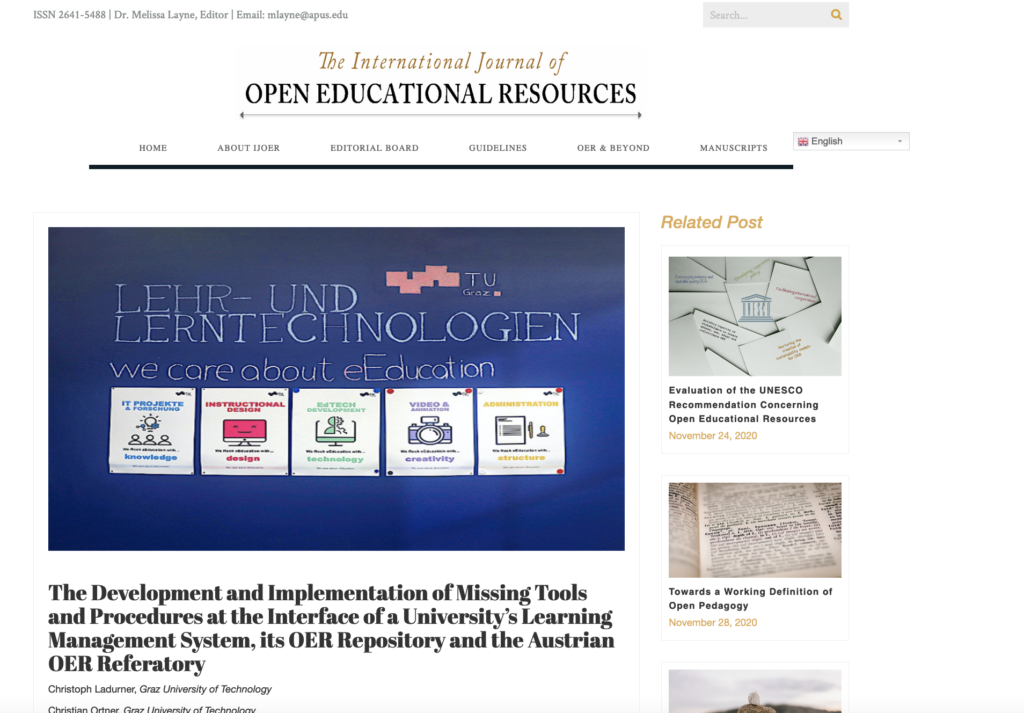
How to develop missing tools and processes when impementing an OER repository and connect it with the Austrian wide OERhub.at? We document and explain our work in our latest publication:
To enable broad access to education and generous use of educational resources, Graz University of Technology (TU Graz) also relies on Open Educational Resources (OER). This article describes the technological developments and processes that enable teachers at TU Graz to use their own learning management system (LMS) for the publication of OER. The article describes how interfaces and processes have marked educational resources of TU Graz with metadata to offer them to a broad public via the university’s own OER repository and via the Austrian OER portal of the University of Vienna. Only appropriately qualified lecturers at TU Graz are authorized to use the new OER plug-in. The article concludes with recommendations for projects in OER infrastructure implementations.
- Ladurner, Christoph; Ortner, Christian; Lach, Karin; Ebner, Martin Haas, Maria; Ebner, Markus; Ganguly; Raman & Schön, Sandra (2020). The Development and Implementation of Missing Tools and Procedures at the Interface of a University’s Learning Management System, its OER Repository and the Austrian OER Referatory. In: International Journal of Open Educational Resources (IJOER), Volume 3, No. 2 Fall 2020 Winter 2021, URL: https://www.ijoer.org/the-development-and-implementation-of-missing-tools-and-procedures-at-the-interface-of-a-universitys-learning-management-system-its-oer-repository-and-the-austrian-oer-referatory/ Researchgate: https://www.researchgate.net/publication/346519611_The_Development_and_Implementation_of_Missing_Tools_and_Procedures_at_the_Interface_of_a_University‘;s_Learning_Management_System_its_OER_Repository_and_the_Austrian_OER_Referatory





